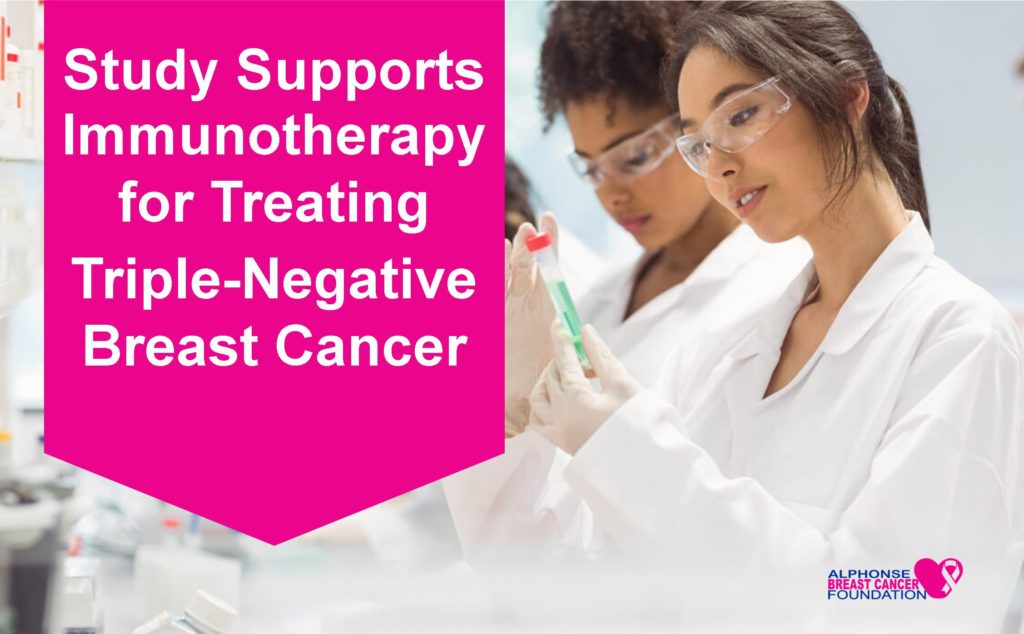A study by an international group of researchers has found for the first time that a combination of immunotherapy and chemotherapy can extend lives of women with triple-negative breast cancer. A new treatment option would be significant because triple-negative breast cancers don’t respond to hormone therapy or targeted therapy. In addition, they tend to grow and spread faster than most other types of breast cancer. The study was published October 20, 2018 in New England Journal of Medicine and presented at the European Society for Medical Oncology 2018 Congress in Munich.
“While chemotherapy is the current standard of treatment for triple-negative breast cancer, there is an urgent need for newer, more effective therapies,” said Leisha Emens, MD, PhD, co-author of the study, in a statement. “The results of this trial showed that adding the immunotherapy drug atezolizumab to chemotherapy was well-tolerated and resulted in a clear increase in clinical benefit for some patients with triple-negative breast cancer.”
The study included 902 women in 41 different countries with advanced triple-negative breast cancer that could not be removed through surgery. They all received the chemotherapy drug Abraxane (nab-paclitaxel) and were randomly assigned to also receive either the immunotherapy drug Tecentriq (atezolizumab) or a placebo. Tecentriq has been previously approved by the US Food and Drug Administration to treat people with bladder cancer and non-small cell lung cancer.
Tecentriq works by blocking PD-L1, a protein on some cancer cells that helps keep the immune system from attacking them. By blocking PD-L1, Tecentriq boosts the immune response against the cancer cells. This can shrink some tumors or slow their growth. As part of the study, patients’ tumors were tested for the presence of the PD-L1 protein.
“This study shows that immunotherapy is active in the treatment of breast cancer particularly in a group of patients with PD-L1 positive disease,” said Dr. Otis Brawley, chief medical and scientific officer of the American Cancer Society.
The study measured both progression-free survival (how long after treatment starts that a patient lives without the tumor getting worse) and overall survival (how long after treatment starts that a patient lives).
Among all women in the trial, those who received both chemotherapy and Tecentriq had a progression-free survival of 7.2 months compared with 5.5 months for women who received chemotherapy alone. Among women whose tumors expressed the PD-L1 protein, those who received both chemotherapy and Tecentriq had a progression-free survival of 7.5 months compared with 5 months for women who received chemotherapy alone.
Overall survival was 21.3 months in the combination treatment group compared with 17.6 months for women treated with chemotherapy alone. Among women who expressed PD-L1 on their tumors, overall survival was 25 months compared with 15.5 months for those who received chemotherapy alone.
“We need drugs with a better response in breast cancer,” said Brawley. “Even a 10-month response in patients with PD-L1 positive triple-negative breast cancer is dissatisfying but important.” He adds the results of this study justify further study to determine which patients may benefit the most and why. “How to get a better response is an important question.”
The trial was funded by F. Hoffmann-La Roche/Genentech, which markets Tecentriq.

